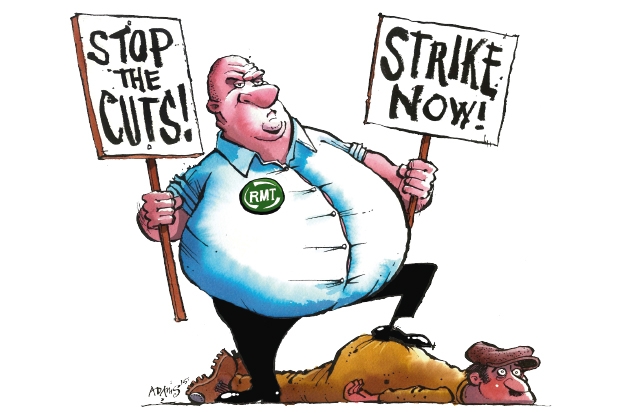Who is being more rational in the dispute over new striking laws: the government or the union barons? With just under a week to go until the summer recess, the government will begin fulfilling another manifesto commitment by introducing new legislation to the Commons today that will reform striking rules. The Trades Union Bill will require a 50 per cent turn out for ballots on industrial action and in core public services (schools, health, transport and fire services), 40 per cent of those who are eligible to vote will need to back a strike.
While the unions may see this as 1980s-esque battle to the death, the government is arguing that is is simply readjusting the balance between the unions and the public. On the Today programme, the skills minister Nick Boles said the new legislation will bring a ‘reasonable and fair balance between the interests of trade unions and the interests of people who are trying to get a work on time’:
‘The right to strike is absolutely something we must maintain and indeed, most recent strikes if you actually look at the figures would have passed these thresholds … we have a responsibility to think about people using the services.’
One of the more contentious elements of the Trades Union Bill is removing the automatic political party opt-in for union members.

Britain’s best politics newsletters
You get two free articles each week when you sign up to The Spectator’s emails.
Already a subscriber? Log in







Comments
Join the debate for just £1 a month
Be part of the conversation with other Spectator readers by getting your first three months for £3.
UNLOCK ACCESS Just £1 a monthAlready a subscriber? Log in